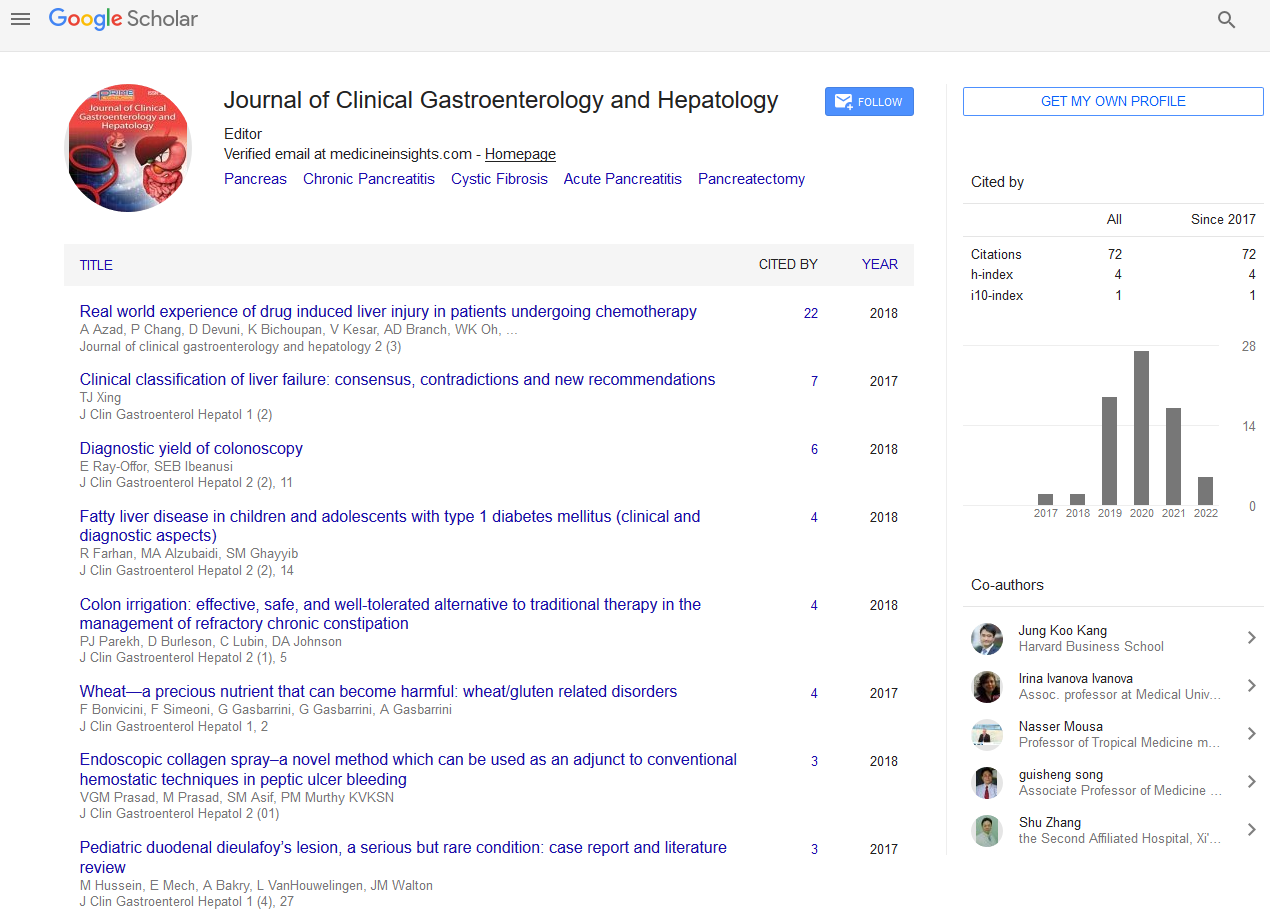Commentary - (2023) Volume 7, Issue 5
Gastric Ulcers: A Comprehensive Exploration of Causes, Symptoms, and Treatment Approaches
Camilleri Pritchard*
Department of Pharmacology and Systems Physiology, Yale University, USA
*Correspondence:
Camilleri Pritchard,
Department of Pharmacology and Systems Physiology, Yale University,
USA,
Email:
Received: 02-Oct-2023, Manuscript No. IPJCGH-23-18373;
Editor assigned: 04-Oct-2023, Pre QC No. IPJCGH-23-18373 (PQ);
Reviewed: 18-Oct-2023, QC No. IPJCGH-23-18373;
Revised: 23-Oct-2023, Manuscript No. IPJCGH-23-18373 (R);
Published:
30-Oct-2023, DOI: 10.36648/2575-7733.7.5.43
Description
Gastric ulcers, also known as peptic ulcers, are painful sores that develop on the lining of the stomach. These ulcers can cause discomfort and complications if left untreated. In this article, we will delve into the causes, symptoms, and treatment options for gastric ulcers. Gastric ulcers are primarily caused by the erosion of the stomach lining. The most common culprits include. This bacterium is a major contributor to the development of gastric ulcers. It weakens the protective mucous lining of the stomach, allowing stomach acid to damage the underlying tissues. Prolonged use such as aspirin and ibuprofen, can irritate the stomach lining and lead to the formation of ulcers. An overproduction of stomach acid can contribute to the erosion of the stomach lining, increasing the risk of ulcer formation. Recognizing the symptoms of gastric ulcers is crucial for early diagnosis and effective treatment. Common symptoms include. A burning or gnawing pain in the stomach, often felt between meals or during the night. Individuals with gastric ulcers may experience nausea and vomiting, especially after eating. Unexplained weight loss can be a symptom of more severe ulcer cases. Some individuals may experience a loss of appetite or early satiety due to the discomfort associated with eating. The treatment of gastric ulcers typically involves a combination of lifestyle changes, medications, and, in some cases, surgical intervention. Here are key aspects of ulcer management. If Helicobacter pylori infection is identified, a course of antibiotics is prescribed to eliminate the bacteria. Proton pump inhibitors blockers help decrease stomach acid production, promoting healing of the ulcer. These provide quick relief by neutralizing stomach acid, reducing pain and discomfort. Patients are advised to limit or avoid and other substances that may irritate the stomach lining. Quitting smoking, reducing alcohol consumption, and adopting a healthy diet can aid in the preven-
tion and management of gastric ulcers. In severe cases where medications prove ineffective or complications arise, surgical intervention may be necessary to repair the ulcer and address underlying issues. Gastric ulcers are a common digestive disorder that can significantly impact an individual’s quality of life. Recognizing the causes, symptoms, and available treatment options is crucial for early intervention and improved outcomes. If you suspect you have gastric ulcers or are experiencing persistent digestive discomfort, it is essential to consult with a healthcare professional for proper diagnosis and personalized treatment. Gastric ulcers, also known as peptic ulcers, represent a significant medical concern affecting the digestive system. These ulcers are characterized by open sores or lesions that develop on the inner lining of the stomach. Understanding the multifaceted aspects of gastric ulcers is essential for effective management and prevention of complications. Gastric ulcers are a complex medical condition with diverse underlying causes and manifestations. A comprehensive approach to treatment involves a combination of targeted medications, lifestyle adjustments, and, in some instances, surgical intervention. Early recognition of symptoms and prompt medical attention are paramount for effectively managing gastric ulcers and minimizing the risk of complications. If you suspect you have gastric ulcers or are experiencing persistent symptoms, consult with a healthcare professional for a thorough evaluation and personalized treatment plan.
Acknowledgement
None.
Conflict Of Interest
The authors declare that they have no conflict of interest.
Citation: Pritchard C (2023) Gastric Ulcers: A Comprehensive Exploration of Causes, Symptoms, and Treatment Approaches. J Clin
Gastroenterol Hepatol. 7:43.
Copyright: © 2023 Pritchard C. This is an open-access article distributed under the terms of the Creative Commons Attribution License, which permits unrestricted use, distribution, and reproduction in any medium, provided the original author and source are credited.

